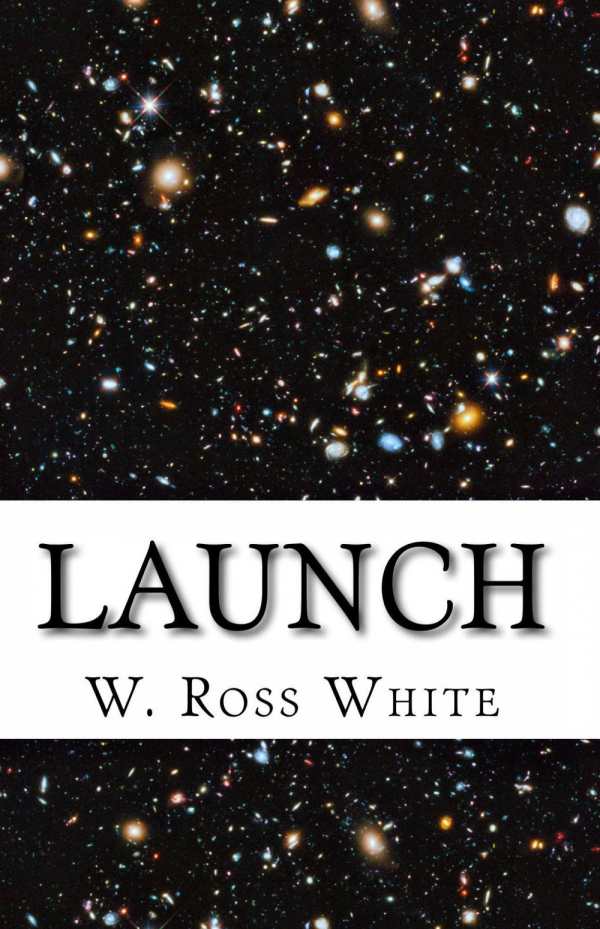
Launch
Questions about purpose, humans’ yearning for exploration, and individual destiny mix with meticulous world-building in this thoughtful novel.
In a well-researched, richly drawn future world, W. Ross White narrates the story of scientist Markus Bowland, who earns a spot on a groundbreaking new mission and must decide whether to move boldly into the future or remain loyal to his past. Launch centers heavily on Markus’s dilemma surrounding this mission, as he struggles with existential angst, family obligations, and his sense of purpose.
When Markus decides to apply for one of the wild-card spots on the New Horizon, a starship headed to a planet 160 years away, with his longtime best friend, Hugh, he never imagines that he’ll earn a coveted spot, while Hugh will not. Nor does he imagine the familial ties and earthly obligations that will make his decision almost impossible to make. Should he take a chance on the prestigious mission and the once-in-a-lifetime opportunity, or should he remain behind to tend to a world that lays claim to him?
Launch presents a world brimming with detail, including many discussions of the various innovations and technological advances of this imagined future. For instance, early characters discuss free oxygen and habitable planets when determining potential destinations for starships. Later, the author goes into the workings of the ships as well as technology like the engineering of custom microbes to clear greenhouse gases and pollutants from the atmosphere, or plastic-eating bacteria that have been dropped into the oceans and genetically modified so they cannot reproduce. Some of this backstory slows down the pace, as White discusses not only the technology but the history of this world, including wars, changing boundaries, and the evolution of various countries. At one point, White includes a long discussion of the differences between androids, sims, and drones, three types of artificial intelligence. Though much of this is fascinating, the details can slow the book down.
Some of the most interesting discussions come from the central conflict, as Markus wrestles with his decision to leave Earth. Markus seems to espouse an existentialist philosophy, believing—as do many others in the book—that the only meaning for humans comes in that which they create for themselves. He notes that “there was an acute horror in having nothing to struggle against nor any demands or expectations of you,” as he and his family and friends experience in the utopian future world, where wars have effectively ceased and every person is provided with a living wage. Markus, accomplished and successful, finds that he doesn’t know what else to devote himself to, and that “things worth believing in, were truly few and far between.”
Markus and many of the other characters look to science and technology to fill this void. The questions his philosophy raises are intriguing, though some characters’ views on religion at times seem simplistic, as when mission member Sengupta calls previous missions (led by Mormons and Catholics) full of “cowards and hypocrites.”
Overall, Launch provides an interesting exploration of these themes, asking questions about purpose, humans’ yearning for exploration, and individual destiny. Those who enjoy science fiction with meticulous world-building and philosophical themes will appreciate White’s thoughtful novel.
Reviewed by
Stephanie Bucklin
Disclosure: This article is not an endorsement, but a review. The publisher of this book provided free copies of the book and paid a small fee to have their book reviewed by a professional reviewer. Foreword Reviews and Clarion Reviews make no guarantee that the publisher will receive a positive review. Foreword Magazine, Inc. is disclosing this in accordance with the Federal Trade Commission’s 16 CFR, Part 255.
